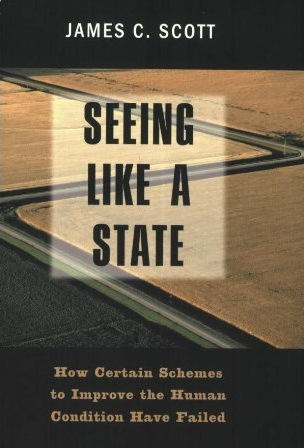I recently finished James C. Scott’s Seeing Like a State.
It’s about what happens when central authorities like governments optimistically try to refashion how people live, in radical, fundamental ways, and how this frequently fails in ways they do not anticipate.
In part, this is because the authority needs to better understand the situation in order to refashion it. To better understand it, it needs to be rendered more legible, which can be done by simplifying it passively (ignoring all but certain features) or actively (by shaving away all but certain features). But each of those approaches has drawbacks: ignoring some features means that you don’t really know or control what’s going on; eliminating those features may end up eliminating vitally important things that keep the system you’re refashioning running. Either way, though, whatever the original motivation for the refashioning, it usually ends up being largely a project of making the situation more legible for the central authority — which is often antithetical to the project of making it better.
I’m reminded of the frequent calls for progress reports and the desperate pleas for “metrics” from management at companies I’ve worked for. You may remember a somewhat similar argument to Scott’s offered by David Graeber in his analysis of bureaucracy in The Utopia of Rules. From my review:
[O]ne of the purposes of bureaucracy is to organize ignorance in such a way that it allows powerful people to maintain their hard-earned stupidity while projecting an air of command and control. “Bureaucratic procedures,” writes Graeber, “which have an uncanny ability to make even the smartest people act like idiots, are not so much forms of stupidity in themselves, as they are ways of managing situations already stupid because of the effects of structural violence.”
Scott has been on my radar for a while now, and I referred to a lot of his other writings on peasant resistance in my 99 Tactics of Successful Tax Resistance Campaigns.
Rather than review it, though, I’ll just point to some good reviews on other sites that have popped up recently:
- Book Review: Seeing Like a State, Slate Star Codex
- Man as a Rationalist Animal, sam[]zdat
Scott also gave a summary of his arguments in “The Trouble with the View from Above”.

